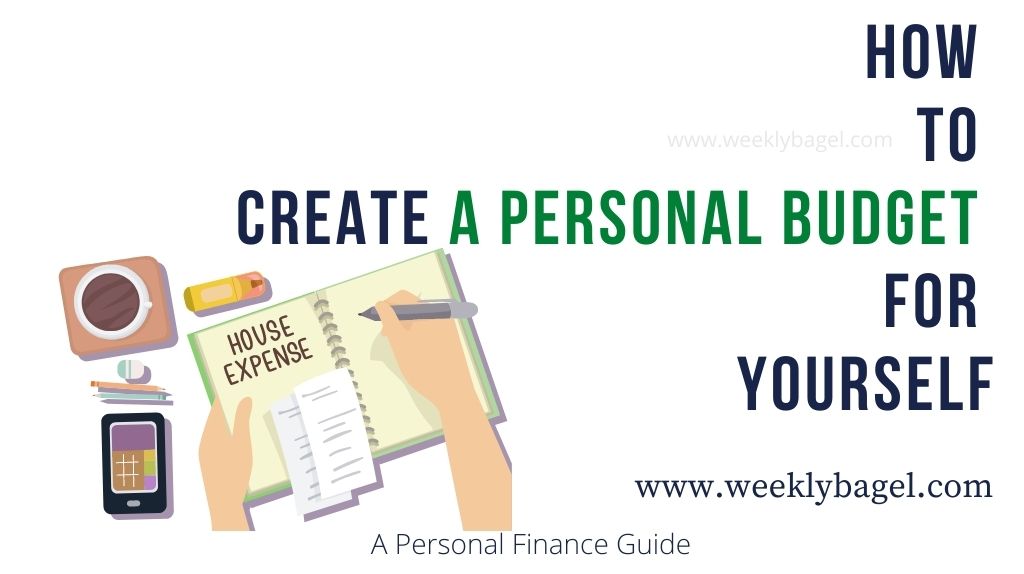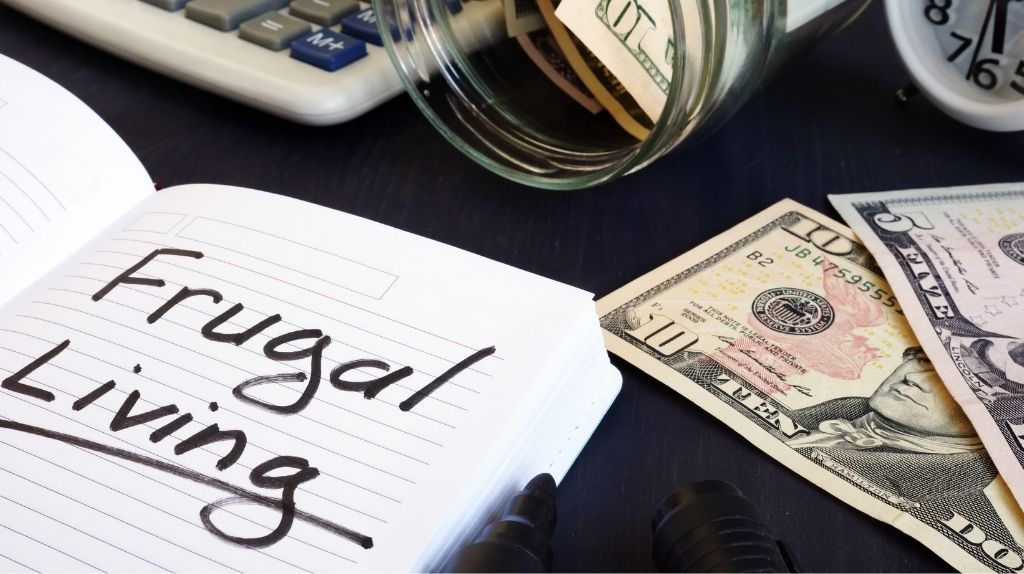
As a young adult, it is necessary to create a personal budget for yourself. This is because a majority of your monthly income will go into living expenses. Without a budget, you may be left with nothing at the end of every month.
Besides, there are other reasons to make a personal budget. It can be due to a debt management or a lifestyle decision. Whatever your reason is, a budget is needed to avoid constantly being broke. You can neither save money nor afford your heart desires without one.
Chiefly, the purpose of a personal budget is to make sure your monthly expenses are not greater than your income. It is the most effective way to keep track of your personal finances. With that said, here is how to budget for young adults.
1. Be Clear About the Goals Behind Your Budget Plan
To make a personal monthly budget, you need to ascertain what you hope to accomplish. Your goals need to be specific and realistic. Personally, my goals for budgeting are to save and redirect money to my savings, emergency and investment accounts.
On the other hand, your goals can be totally different from mine. Your budget may be set to curb your spending habits. Or even better, help you live within your means.
Budget goals differ from adult to adult. This is why you need to be clear about your goals. Once they are determined, make them your budget’s mission statements.
2. Analyze the Last Three Months Expenses
Now you know what your budgeting goals are, print out your bank statements for the last three months. This is to get an idea of your average monthly expense. Let me elaborate.
Your average monthly expense is the sum of all your monthly expenses divided by the number of months. If you are looking at the total expenses for the last three months, you will have to add them up and divide the number by three.
Here is an example below.
| Month | Expense Name On Your Bank Statement | Total |
|---|---|---|
| January | Rent, Car Insurance, Fast Food, Car Payments, StarBucks, Toileries | $1500 |
| February | Rent, Car Insurance, Fast Food, Car Payments, StarBucks, Toileries, Dates, Party with Friends | $1820.30 |
| March | Rent, Car Insurance, Car Payments, Toiletries, Harry Porter Books, Food | $1315.07 |
| TOTAL EXPENSES OVER A THREE MONTH PERIOD: $1500 + $1820.30 + $1315.07 = | $4635.37 |
From the example above, your average monthly expense will be $1500 + $1820.30 + $1315.07 divided by three months. Do you get it now, good reader?
In our example case, our average expense is $1545.12 per month. Usually, I recommend using at least six months of expense data to get an approximated average monthly expense. This is because it will give you total expense per month over a long period of time.
With your average monthly expense, you can sift through them to determine the necessity of some expenses. Your bank and bill statements will help you do this easily. And, this leads me to our next step.
3. Divide Your Expenses Into Groups
Your average monthly expense gives you an idea of how much you are spending every month. To create a practical budget that works, divide your monthly expenses into necessities and non-necessities. This is to see whether you can do without some expenses and lower your average monthly expense.
Also, doing this will help you determine your monthly fixed and variable expenses. Your monthly fixed expenses do not change every month. A good example is your monthly rent.
However, your variable expenses change a lot. Some examples of this kind of expense include food expense and fuel expense. These two are not constant.
Your table should look like the one below.
| NECCESSITIES | NON-NECESSITIES |
|---|---|
| Groceries | Daily Cappuccino Cups From StarsBucks |
| House Rent | Takeout Meals and Delivery fees |
| Electricity Bills | Credit Cards |
| Utilities | Three Television Streaming Services: Hulu, Netflix and HBO Max |
| Insurance | Cigarrettes |
| Car Notes (If you have a car) | Weekly Alcoholic Beverages |
| Fuel | Bank Deficient Fees |
| Cellphone bill | Missed Payment Penalties |
Now, add up your unnecessary expenses. Whatever you get, is how much your budget plan can save you monthly. Cool, isn’t it?
Well, the best of it is these unnecessary expenses can end up saving you hundreds of dollars monthly. These will add thousands of dollars yearly to your savings. Next, it is time to create your budget.
4. Create A Personal Budget Template
Right now, you know what your average monthly expense is. Also, you are aware of how much a budget can save you monthly. The first thing you need to create a personal budget is a budget template. A budget template is a form, which helps you budget your money.
You can create your own budget template on a notebook. To create budget template for a beginner, you can draw this monthly template below on your note book.
| Name | Expected Amount | Budget Amount | Balance (Expected Amount – Budget = Potential Savings) |
|---|---|---|---|
| MONTHLY INCOME | $________ | ||
| MONTHLY EXPENSES: | Average Expenses: | ||
| Rent | $________ | $_______ | $_______ |
| Electricity | $________ | $_______ | $_______ |
| Insurance | $________ | $_______ | $_______ |
| Grocery | $________ | $_______ | $_______ |
| Car Payments | $________ | $_______ | $_______ |
| Fuel | $________ | $_______ | $_______ |
| Water | $________ | $_______ | $_______ |
| Sewage | $________ | $_______ | $_______ |
| Cellphone bill | $________ | $_______ | $_______ |
| Eat Out | $________ | $_______ | $_______ |
| Internet | $________ | $_______ | $_______ |
| Miscellaneous Expenses | $________ | $_______ | $_______ |
| TOTAL = $_______ | TOTAL = $_______ | Amount Saved = $_______ |
I just created the above table for you to replicate on your note book. You can simply draw it once, then make photocopies. It will help you immensely.
If you do not want to create your own personal budget, there are online places to download and print free budget templates. Here is a list of online places to download some budget free templates.
- Onplanners.com
- Microsoft Budget Templates (Yo! Microsoft has some effective and practical budget templates for young adults in college, with family or a business. By the way, I do not get any commission for recommending them.)
With these resources, you can establish a budget. You can print them out and compiled them into twelve months for monthly use. And, use a folder to organize them.
5. Start Keeping Receipts of Cash Transactions For Budgeting Purposes
Not all of your transactions will go through your bank, so this is why it is important to get a receipt copy of cash transactions. To build a personal budget which is accurate, you will need to keep tracks of all your transactions. Otherwise, loopholes in transaction records can result in bad bookkeeping.
For people who are not into getting a paper copy of receipt, you can either get it sent to your email address or quickly record the transaction. There are apps which can help you do this very accurately. Type budget apps on google store or apple store. Then, download one to help you record cash transactions.
6. Stay Within Your Budget Plan To Get the Desired Change
Creating a personal budget is not enough. You have to stay within your budget plan. To achieve the goals behind your budget, you should strive to live within the amount you budget for all expenses.

This includes during contingencies. By contingency, I refer to unpredictable future expenses which can happen. A good example of what I mean is going out on a date.
Whether it is a beautiful woman or a handsome man, do not spend more than you have assigned for such miscellaneous expense. A beginner budget for a month should be able to give you an idea of your monthly potential expenses and savings. You would know, when a date is going to be expensive.
I will not tell you what to do in such a situation, but I can tell you this. You can wait until you are financially stable, to go on an expensive date. Be aware of avoidable unplanned expenses which can upset your whole budget plan. Whatever your goals for budgeting is, try to stay within your budget plan to get the desired change.
What Can You Can Do If Your Expenses Are Greater Than Your Income?
It is important your expenses do not exceed your income. If your expenses are more than your income, then you will have a negative balance problem. You do not want a negative balance, since it may leave you penniless.
You should aim at having a positive balance every month. A positive balance means your monthly expenses are less than your monthly income. This is important, since it leaves extra money for you to add to your emergency funds or savings.
So, what would you do if your personal monthly expenses were more than your monthly income?
Well, it is a sign an expense is taking more than it should from your budget plan. Refer back to step #3 of how should a beginner budget for a month. You will need to recategorize your expenses into necessary and unnecessary expenses again, in order to sift out what is not needed in your life.
By the way, necessary expenses here refer to expenses you cannot live without. On the other hand, you can live without unnecessary expenses. Therefore, drop the ones which are causing a negative balance.
It may not be easy downgrading on certain expenses to save money. But, I will recommend you to do it. This is because it is the only way you can afford a great life later.
After all, the best part of your life is yet to come. The best thing you can do for yourself right now is to live frugally, so you can afford anything you want as you transit into your late twenties and above. And, a personal budget now will go a long way.




 What Happens When You Deposit A Bad Check: 5 Consequences
What Happens When You Deposit A Bad Check: 5 Consequences